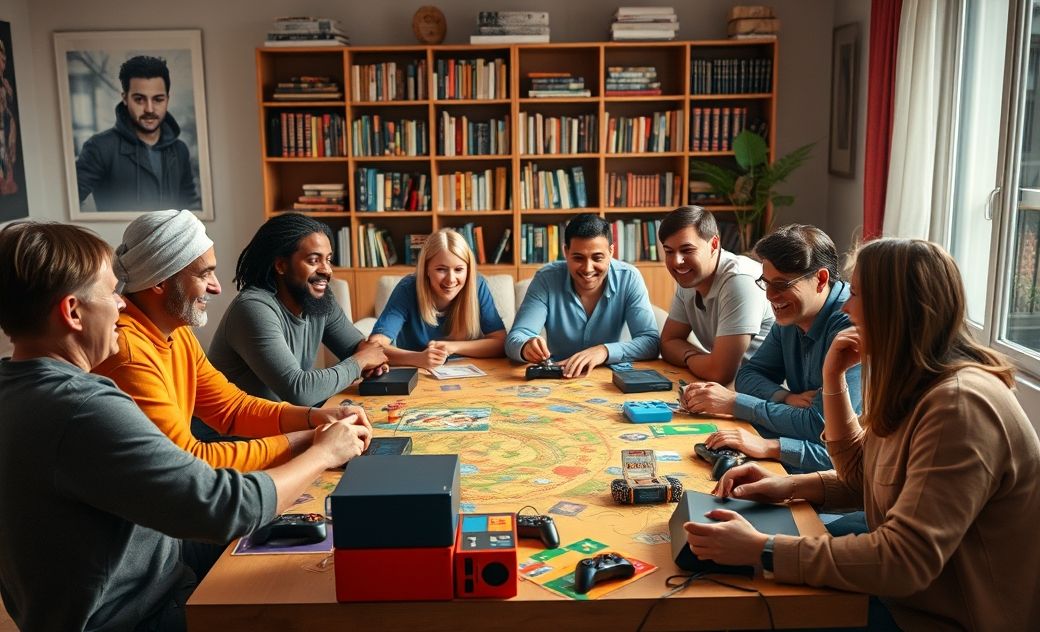As the gaming landscape evolves, there is increasing recognition of the mental health benefits tied to cooperative gameplay. This form of gaming not only provides entertainment but also offers a host of cognitive and emotional advantages. In this article, we’ll delve into the positive impact of cooperative games on mental health and explore the fascinating ways they enhance well-being.
Understanding Cooperative Gameplay
Cooperative gameplay involves multiple players working together towards a common goal, whether it’s completing a mission, solving puzzles, or combating foes. Unlike competitive games that pit players against each other, co-op games focus on teamwork and collaboration. This dynamic fosters a unique environment conducive to developing positive mental health habits.
Fostering Positive Social Interactions
Building Communication Skills
Cooperative games require players to communicate effectively, strategize, and share resources. This interactive dialogue enhances verbal and non-verbal communication skills, which are crucial for everyday interactions. As players engage in discussions about tactics or share in-game experiences, they build rapport and improve their conversational skills.
Creating a Sense of Community
Co-op games often lead to the formation of strong online communities. These platforms provide a space for like-minded individuals to connect, share tips, and support each other. Such interactions can alleviate feelings of isolation, fostering a sense of belonging and companionship.
Enhancing Cognitive Abilities
Problem-Solving and Critical Thinking
Many cooperative games are designed with complex challenges that require strategic thinking and problem-solving skills. Players must analyze situations, weigh options, and make decisions in real-time, which enhances their cognitive flexibility and adaptability.
Improving Attention and Focus
To succeed in a cooperative game, players must pay close attention to their environment and teammates. This demand for sustained attention and focus can improve players’ ability to concentrate on tasks in real life, leading to better productivity and task management.
Emotional Resilience and Stress Relief
Building Emotional Strength
Co-op games often involve facing challenges and setbacks. Navigating these difficulties with a team can build emotional resilience, as players learn to handle failure, support each other, and celebrate shared successes. This process fosters a positive mindset and improves emotional well-being.
Providing an Escape and Stress Relief
Gaming, in general, offers a form of escape from daily stressors. Cooperative gameplay adds the element of social interaction, which can further enhance relaxation. Playing with friends or forming new connections in a virtual setting can distract from stress, reducing anxiety and improving mood.
Encouraging Empathy and Understanding
Co-op games often require players to put themselves in their teammates’ shoes, fostering empathy and understanding. Through shared in-game experiences, players learn to appreciate different perspectives and work harmoniously together. This understanding can translate to better relationships in the real world, encouraging more mindful and empathetic interactions.
The Growing Popularity of Cooperative Games
The popularity of cooperative games continues to grow as players increasingly seek experiences that promote both enjoyment and positive mental health outcomes. Game developers are responding by creating more titles that emphasize cooperation and social connection. As these games become more sophisticated, their potential to support mental well-being is likely to expand.
In summary, cooperative gameplay offers significant mental health benefits, from honing social skills and cognitive abilities to providing stress relief and fostering empathy. As such, it serves as a valuable tool for enhancing well-being, making it a worthwhile pursuit for gamers of all ages. By embracing the power of cooperative gaming, we can cultivate a gaming culture that prioritizes mental health and community engagement.
